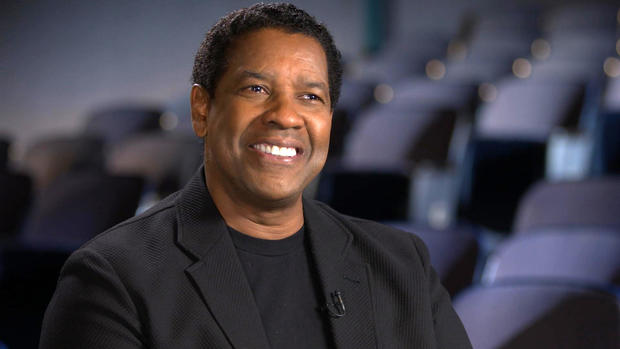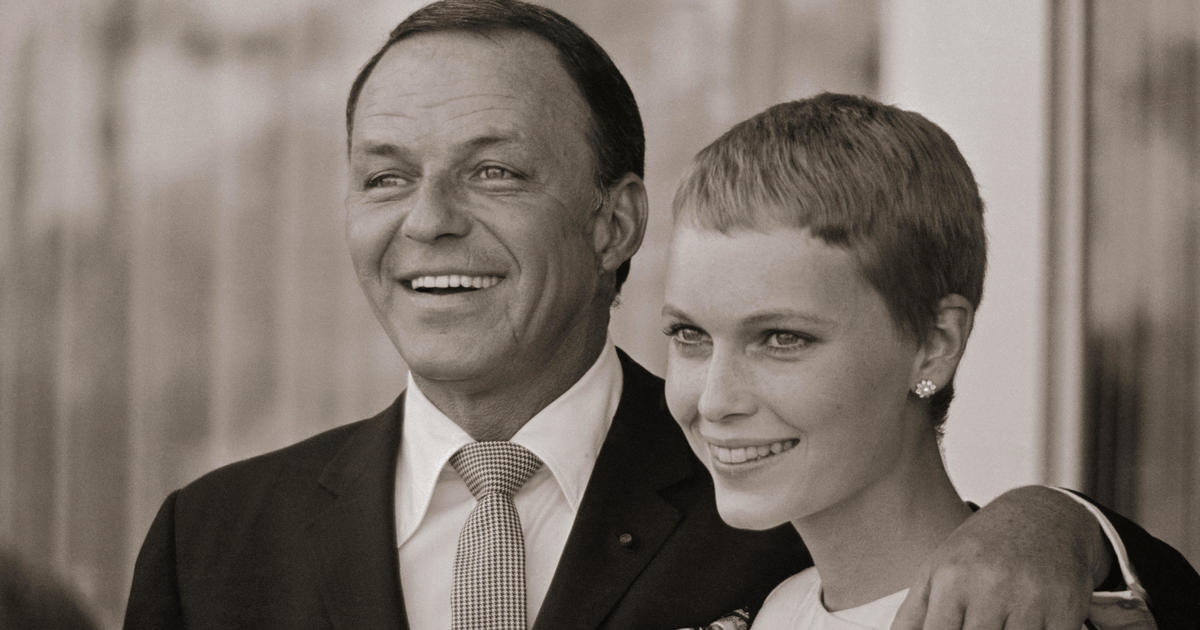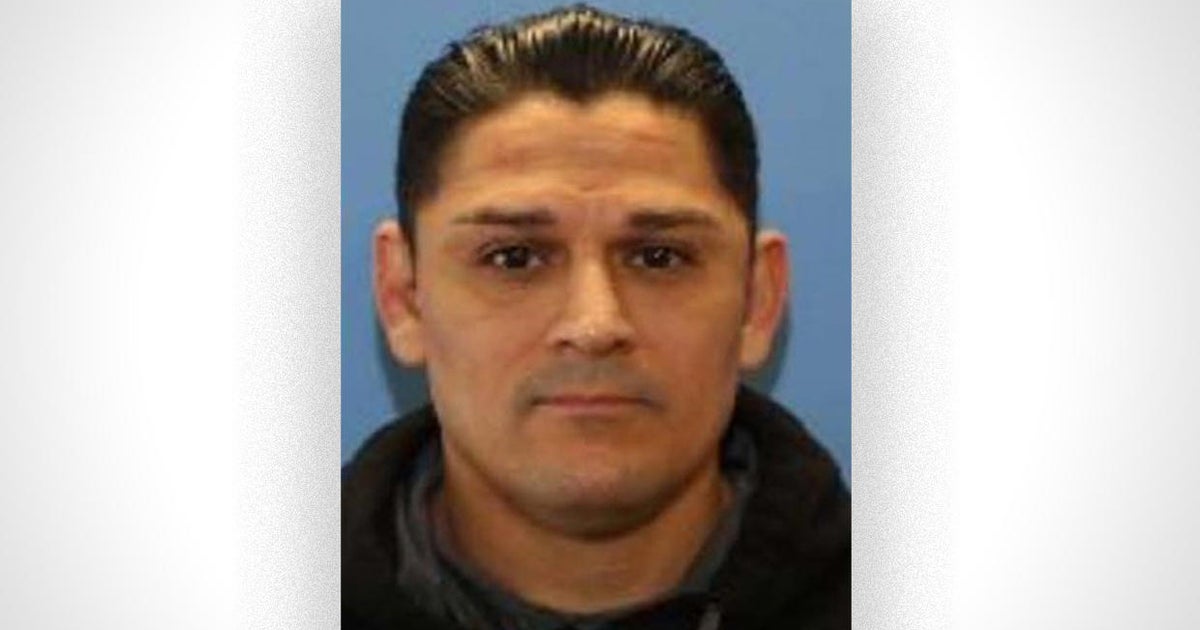Denzel Washington's "fourth-quarter" mission
The following script is from “Denzel,” which aired on Dec. 18, 2016. Bill Whitaker is the correspondent. Ruth Streeter and Kaylee Tully, producers.
Denzel Washington has been acting for more than 40 years. Playing almost everything: Shakespeare; gangsters; action heroes. Now at 61, in what he calls his fourth quarter, Denzel Washington has decided to focus on a project that’s more important to him than any work he’s done: bringing to the screen the works of one of America’s greatest playwrights— the late August Wilson – winner of two Pulitzer Prizes. Wilson, who died in 2005, wrote 10 iconic plays, known as the American Century Cycle, which explore the black American experience in each decade of the 20th century. Denzel has committed to producing all of them – nine for HBO. But “Fences,” Wilson’s most popular work, opens in movie theaters this Christmas. Denzel directs as well as stars.
Bill Whitaker: I understand that you made it clear to everybody on the set that you’re not after good. You’re after great. And that anybody who’s coming to work on this film--
Denzel Washington: Where’d you hear that?
Bill Whitaker: --has to want great.
Denzel Washington: There’s nothin’ wrong with that.
Bill Whitaker: There’s nothin’-- nothin’ wrong with that--
Denzel Washington: Well, the best you can be.
Bono in “Fences” clip: Troy, you oughta stop that lying.
“Fences” is set in Pittsburgh in the 1950s & 60s – when racial integration was just gaining a toehold.
Troy in “Fences” clip: He ain’t said nothing, he told me to go down to the commissioner’s office next Friday. Whoa.
Washington plays 53-year-old Troy Maxson – whose life is defined by his big personality and his bigger disappointments.
Troy in “Fences” clip: Going to fire me because I asked a question? That’s all I did.
Denzel Washington: He is a garbage man who had great ability to play baseball, but he came along at a time, blacks weren’t accepted yet in the big leagues. So he was frustrated by that.
Troy in “Fences” clip: Anybody can drive a truck. How come you have all the whites driving and the colored lifting.
Washington filmed “Fences” in the Hill District of Pittsburgh, a once vibrant black neighborhood where August Wilson grew up. The people who went to work and to church and raised their families here inspired many of his plays.
Denzel Washington: It’s a Pittsburgh story and I wanted to be in Pittsburgh. The stories I get from people, all of that helps to feed the film.
Washington turned this vacant Hill District house into the Maxson family home -- familiar to many of us who grew up in a black working class neighborhood at the time.
Bill Whitaker: I swear I know this house.
Denzel Washington: Yeah, man. Now, now OK, now, you tell me.
Bill Whitaker: My aunt lived in this house.
Denzel Washington: Yeah?
Bill Whitaker: And I--
Denzel Washington: The front room and--
Bill Whitaker: Uh-huh. Uh-huh. The parlor.
Denzel Washington: The parlor.
Denzel Washington: I’ll take you for the tour. This is the dining room.
Bill Whitaker: The dining room.
Bill Whitaker: And this--
Denzel Washington: Is it-- it got Jesus, Martin Luther King.
Bill Whitaker: In the 60s this was in every African American--
Denzel Washington: You know I had to--
Bill Whitaker: --house.
Denzel Washington: --put that in there. You know I put that in there.
Bill Whitaker: Every--
Denzel Washington: You know it.
Bill Whitaker: African American--
Denzel Washington: And they outta be felt. You know, that black-- whatever that felt stuff, right? Of course, you got Jesus, Martin Luther King, and John F. Kennedy and her baby. She-- you notice she don’t have no pictures of Troy up there. That’s terrible actually.
Denzel Washington: This is the back yard.
Bill Whitaker: The action takes place right out here.
Rose in “Fences” clip: What you all out here getting into?
Troy in “Fences” clip: What you worried about what we getting into for? This is men talk, woman.
“Fences” is the story of a family unraveling. Troy from his wife, Rose. And from his son, Cory.
Troy in “Fences” clip: Look boy, the white man ain’t gonna let you get nowhere with no football no way. No you get your book learning so you can work your way up at the A&P, learn how to fix cars or build houses, get you a trade. This way you got something can’t nobody take away from you.
Bill Whitaker: Do you see your father in Troy?
Denzel Washington: In some regards. He couldn’t read well. He had the same conversation with me about getting a good tra-- you know, he-- he worked for the water department in New York. And-- he-- he could-- he could get me on at the water department. And he said, you know, I could be a supervisor in 25 years. He’s like, “You get a good job. You get a trade—
Bill Whitaker: Get a secure job.
Denzel Washington: --yeah, a secure job, exactly. Yeah. And-- and like Rose, my mother could see further, you know. “No, he’s gotta get an education. He’s gotta go to college,” And you know, he couldn’t see that far.
Rose in “Fences” clip: Times have changed Troy. People change. The world’s changing and you can’t even see it.
Troy in “Fences” clip: Woman… I do the best I can do. I come in here every Friday. I carry a sack of potatoes and a bucket of lard. You all line up at the door with your hands out. I give you the lint from my pockets. I give you my sweat and my blood. I ain’t got no tears. I done spent them. We go upstairs in that room at night… I fall down on you and try to blast a hole into forever. I get up Monday morning… find my lunch on the table. Go out. Make my way. Find my strength to get me through to next Friday. That’s all I got Rose.
Denzel Washington: I remember seeing my father in the driveway, listening to the ballgame. He had his-- I remember, the door would be open. He had his foot out. And he’s just listening to the ballgame. And I realize, as when I got older, it was the only place where he had a chance to-- he just dealt with one boss. Now he’s about to go in the house, and my mother’s in there. The other boss. And he had maybe 10 minutes to himself to be the boss.
Bill Whitaker: In the driveway.
Denzel Washington: In the driveway.
Bill Whitaker: Listening to the ballgame.
Denzel Washington: Listening to the ballgame and, ‘cause he had to come home and eat, and then go to the night job.
Bill Whitaker: Do you tap into that to bring that out into the performance?
Denzel Washington: It’s in there.
Bill Whitaker: Gotta be.
Denzel Washington: Yeah, it’s gotta be.
Rose in “Fences” cip: Jesus be a fence all around me every day.
Viola Davis told us she admired Denzel Washington long before they acted in “Fences” together on Broadway.
Viola Davis: When I was younger, I just thought he was good-looking, you know, so I was like, “Denzel is so good-looking.”
Bill Whitaker: Was it difficult having him as both leading man and director?
Viola Davis: Not at all. I thought he flowed in and out of those two things effortlessly. He never gets in the way. I think that’s a testament to him as an artist that his ego took a backseat to anything.
Denzel Washington: I think this is a role of a lifetime for her. And she bites down and she-- she-- tears it up.
Troy in “Fences” clip: It’s not easy for me to admit that I been standing in the same place for 18 years.
Rose in “Fences” clip: Well I been standing with you. I been right here with you, Troy. I got a life too. I gave 18 years of my life to stand in the same spot as you. Don’t you think I ever wanted other things? Don’t you think I had dreams and hopes? What about my life? What about me?
Viola Davis: People say everything in film is small. Every moment is small. You gotta play it small. And sometimes moments are not small.
Bill Whitaker: It’s painful to watch.
Viola Davis: Well, it should be. Because that’s just how August wrote. He didn’t write small.
August Wilson’s themes are big and universal. His plays chronicle the struggles of black Americans searching for what everyone wants: dignity, love, security--across generations and in the face of overwhelming odds. His genius was capturing the sensibilities, the unique cadences of African-American life with finely crafted language.
Denzel Washington: There’s a line I say “What that mean to me, Bonnie workin’?”
Troy in “Fences” clip: What that mean to me, Bonnie workin’? I don’t care if she workin’. Go ask her for $10 if she workin’. Talkin’ about Bonnie workin’. Why ain’t you workin’?
Denzel Washington: So it’s--
Bill Whitaker: There’s a rhythm.
Denzel Washington: --there’s a rhythm to it. “What-- what that mean,” not, “What does that mean to me?” He wrote, “What that mean to me, Bonnie workin’? I don’t care if she workin’. Go ask her for $10 if she workin’. Talkin’ about Bonnie workin’. Why ain’t you workin’?” It’s like Shakespeare. The punch line is actually set up, if you just play the music.
At a scoring session we found Washington putting music to Wilson’s words. It’s all part of being the director. Which he’s done twice before.
Denzel Washington: I just dig the process. Days like today, man, it don’t get no better than this-- And in theory I’m the boss, don’t tell anybody. Like, “Oh, really?”
Bill Whitaker: August Wilson wanted to have-- a black director. To make the film.
Denzel Washington: Yeah. Well, he got his wish.
Bill Whitaker: He got his wish.
Denzel Washington: No pressure on me the last I check I was black-- I am black. So—
Bill Whitaker: Check.
Denzel Washington: Yeah, yeah. I covered that, yeah. I didn’t have to audition. Yeah.
Bill Whitaker: He said he didn’t think a white director would be able to get it-- give it justice--
Denzel Washington: It’s cul-- it’s cultu-- I think it’s a cultural thing more than a race thing.
Bill Whitaker: And culturally, you understand--
Denzel Washington: I-- oh, no question--
Bill Whitaker: --you understand this place and these people--
Denzel Washington: No - no question. When we would come out pourin’ a little for the boys upstate, I mean, I grew up with that. We always poured out a little liquor for the guys that were locked up or the guys that were dead. I know what it smells like when my sister’s getting her hair fried with an iron-- hot iron on a Sunday mor--
Bill Whitaker: Sunday morning--
Denzel Washington: Thank you. So you see what I’m sayin’? That’s culture--
Denzel Washington: --that’s not even race, that’s culture.
Denzel Washington grew up in Mt. Vernon, a working class suburb of New York City. His mother owned a beauty salon. To keep him off the streets she scraped together the money to send him to boarding school. He went to Fordham University and began acting in plays. Hollywood took notice.
Denzel Washington: I did a TV movie in 1978 called “Flesh and Blood.” We filmed here.
Kirk in “Flesh and Blood” clip: You’re going to be a heavy weight. You got the chin. You got the guts. But most of all, Bobby, most of all, my blue-eyed friend. Most of all, you’re white.
Bill Whitaker: It may surprise you, but I-- I saw that.
Denzel Washington: “Flesh and Blood”?
Bill Whitaker: Uh-huh (affirm).
Denzel Washington: Oh.
Bill Whitaker: That’s it. And--
Denzel Washington: Had a gap in my teeth then.
Bill Whitaker: You had a gap in your teeth--
Denzel Washington: And broken teeth.
Bill Whitaker: --and you-- and your voice was a little higher, it seems.
Denzel Washington: Was it?
He went on to win his first Oscar for his role in the Civil War drama “
glory,” playing a defiant Union soldier in one of the first black regiments.
Viola Davis: Watching him in “Glory,” I can’t express what it means to an actor to see a performance like that because it was brave. Who would’ve made a choice to-- as they’re getting beaten to play both bravery and pain at the same time? Moments like that inspire you as an artist to go there also.
Malcolm X in “Malcolm X” clip: Oh, I’m so surprised.
He is known in Hollywood for his almost obsessive preparation and attention to detail. He says it helps him disappear into his roles.
Bill Whitaker: Malcolm X. You kinda looked like him.
Denzel Washington: Actually, I don’t.
Bill Whitaker: I know you don’t. But in the movie, you convinced people that you look like Malcolm X.
Malcolm X in “Malcolm X” clip: When you have a powder keg and there are too many sparks around it the things going to explode.
Denzel Washington: It’s what I do.
Bill Whitaker: That’s what you do.
Denzel Washington: That’s what I do.
Bill Whitaker: And with Rubin Hurricane Carter? I understand you train with boxing.
Denzel Washington: Yeah, yeah, /in a movie, the shots have to be short, and you have to fake it and do all that kinda stuff, so.
Bill Whitaker: Oh, you were faking it?
Denzel Washington: Not the body shots. All the body shots, we just-- were-- were real.
Bill Whitaker: So you were getting punched?
Denzel Washington: And I was punching. Doesn’t hurt as long as you’re getting a few shots off.
Bill Whitaker: Training Day.
Alonzo in “Training Day” clip: Today’s your training day Officer Hoyt.
Denzel Washington: I did a lotta work with the L.A.P.D. I found out how dangerous it was.
Alonzo in “Training Day” clip: You got today and today only to show me who and what you’re made of. You hear me?
Jake Hoy in “Training Day” clip: I hear you.
Alonzo in “Training Day” clip: My nigga.
Bill Whitaker: He was tough.
Denzel Washington: Alonzo was just wicked. Just evil.
Bill Whitaker: You hear often that black actors, black movies don’t play well overseas. IOs that the truth? Or is that an excuse?
Denzel Washington: I’ve heard everything. And what I hear keeps changin’. ‘Cause they used to say it didn’t sell over here. And it does. Then they said, “Doesn’t sell in-- in the South.” And it does. “Well, it doesn’t sell in Europe.” And it does. So I just keep pushin’. Well, what an opportunity I have to prove them wrong.
And he has – becoming one of Hollywood’s most bankable stars. He’s favored to get a seventh Oscar nomination for “Fences.”
Bill Whitaker: --this is all happening at a time when, the Oscars are being criticized for lack of diversity. I’m just wonderin’, what do-- what do you think about that?
Denzel Washington: I don’t have to think about it. I’ve lived it. I’ve been the guy at the Oscars without my name being called. I’ve been the guy at the Oscars when my name is called. I’ve been the guy at the Oscars when everybody thought they was gonna call my name, and they didn’t. I’ve-- I’ve lived it.
Bill Whitaker: So what-- what would you say to the people who are looking at this process and saying it’s unfair.
Denzel Washington: Yeah, and so what? You gonna give up? If you’re lookin’ for an excuse, you’ll find one.
Bill Whitaker: In race?
Denzel Washington: You can find it wherever you like. Can’t live like that. Just do the best you can do.
Bill Whitaker: So what’s next? I mean, are you enjoying this, directing?
Denzel Washington: I won’t be directing anytime soon.
Bill Whitaker: You will not be?
Denzel Washington: No. No.
Bill Whitaker: Going back to the acting?
Denzel Washington: What’s your first name?
Bill Whitaker: Bill.
Denzel Washington: Right. Put a “s” on it.
Bill Whitaker: Gotta pay a couple of ‘em.
Denzel Washington: That’s-- that’s correct.
Bill Whitaker: Acting pays the bills, so—
Denzel Washington: Acting pays the bills. Do what you gotta do, so that you can do what you want to do. I’ve just done what I wanted to do. Now I gotta get back to what I gotta do.





